Drought in Amazonas and COP 30: Challenges and Opportunities for Pirarucu Management
Reports of the impacts of the second consecutive year of extreme drought in Amazonas and strategies for incidence in COP 30 were central themes of the 12th meeting of the Pirarucu collective
Reports of the impacts of the second consecutive year of extreme drought in Amazonas and strategies for incidence in COP 30 were central themes of the 12th meeting of the Pirarucu collective
By Talita Oliveira | OPAN
The extreme drought that hit the Amazon for the second consecutive year has imposed great challenges on the managers and handlers of arapaima, directly affecting fishing and monitoring activities. While communities deal with these impacts on routine, affecting income and food security, the expectation is growing around the 30th UN Conference on Climate Change (COP30), which will take place in Belém (PA), in November 2025.
Faced with this scenario, more than 100 representatives from 22 organizations met in Manaus, during the month of December, for the 12th meeting of the Pirarucu collective. The meeting focused on strengthening climate adaptation strategies and the construction of an incidence agenda for COP 30, expanding the voice of communities in the struggle for the conservation of territories and for the sustainable management of the pirarucu.
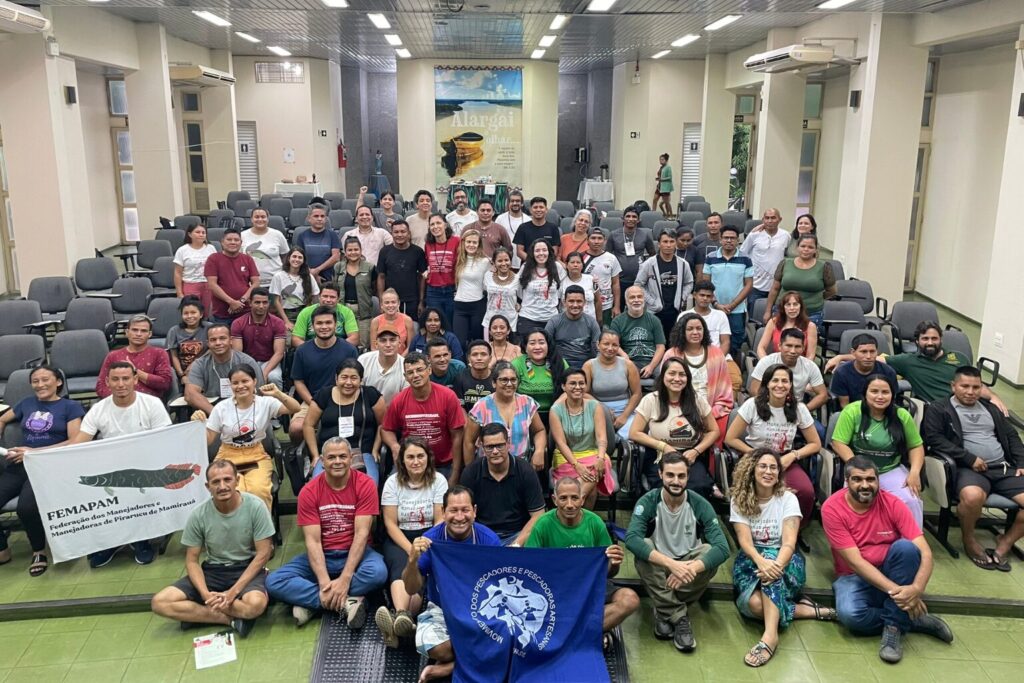
“Events related to climate change will be more recurrent and the imbalances in the distribution of rains, changes in sea currents and winds have caused scenarios such as the severe drought in the Amazon”, evaluates James Bessa, environmental analyst at the Brazilian Institute for the Environment and Renewable Natural Resources. (Ibama), who participated in the event.
Impacts of drought on arapaima fishing
The first agenda of the group meeting was the 2024 Fisheries Reports and how the communities felt the impacts of the drought in the different territories. Francisco Paumari, management coordinator at the Indigenous Association of the People of Waters (AIPA), told the challenges faced by the Paumari people, who for more than a decade have been managing the pirarucu on the Tapauá River for more than a decade.
“We had great difficulty closing the quota in 2023 and 2024. This year, due to the drought, we fished in a period that we had never fished. We also had to seek new partnerships for commercialization due to the lack of water in the river, which made it difficult to navigate and prevented us from taking the fish to the refrigerator in Manacapuru”, says Francisco.
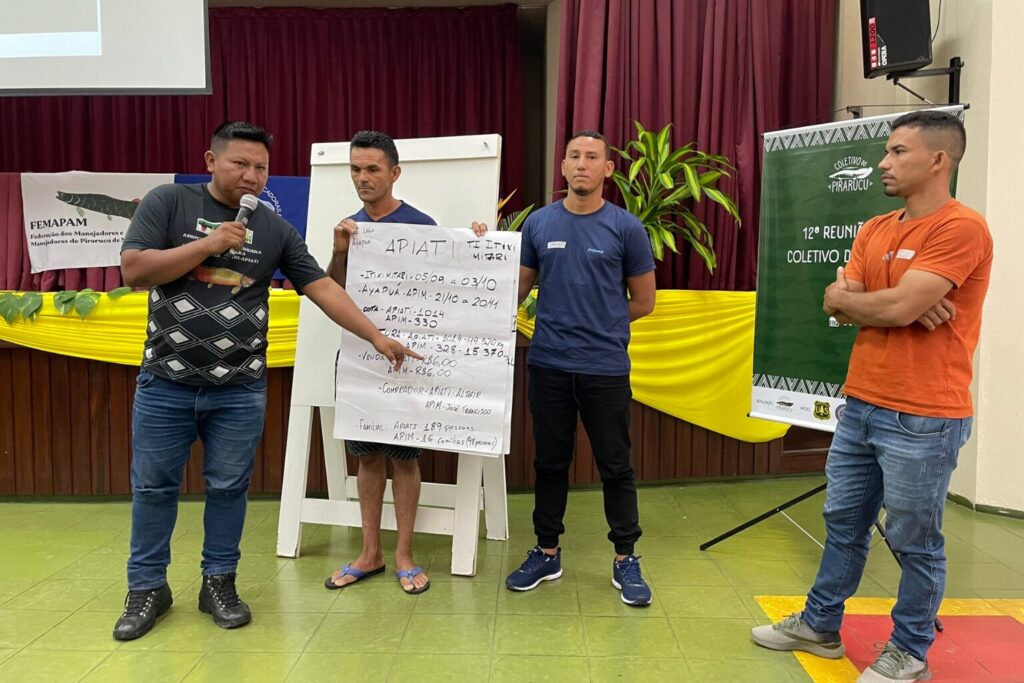
Water shortages raised fishing costs and made it difficult to count fish. In addition, the price of arapaima remains stagnant, making the commercialization challenging. initiatives such as the collective brand I like the Amazon, under the management of the Association of Rural Producers of Carauari (ASPROC), and the Federal Government’s Food Acquisition Program (PAA), help to mitigate impacts, but still on a small scale.
Among the solutions discussed are access to technologies for evisceration, the modernization of the boat fleet and the creation of a climate insurance for the handling communities. “As handlers we need to discuss and focus on this topic. We don’t know if it will be full and what next year’s drought will be”, reflects Pedro Canízio, president of the Federation of Handlers and Handlers of Pirarucu de Mamirauá (Femapam).
COP 30: possibilities of incidence
For the first time, the Pirarucu collective discusses its possible participation in a climate conference. During the meeting, Andreia Fanzeres, coordinator of the Indigenous Rights Program, Indigenist Policy and Information to Society (PDI) of Operation Native Amazon (OPAN), presented the climate policy scenario and highlighted opportunities for participation in the COP 30.
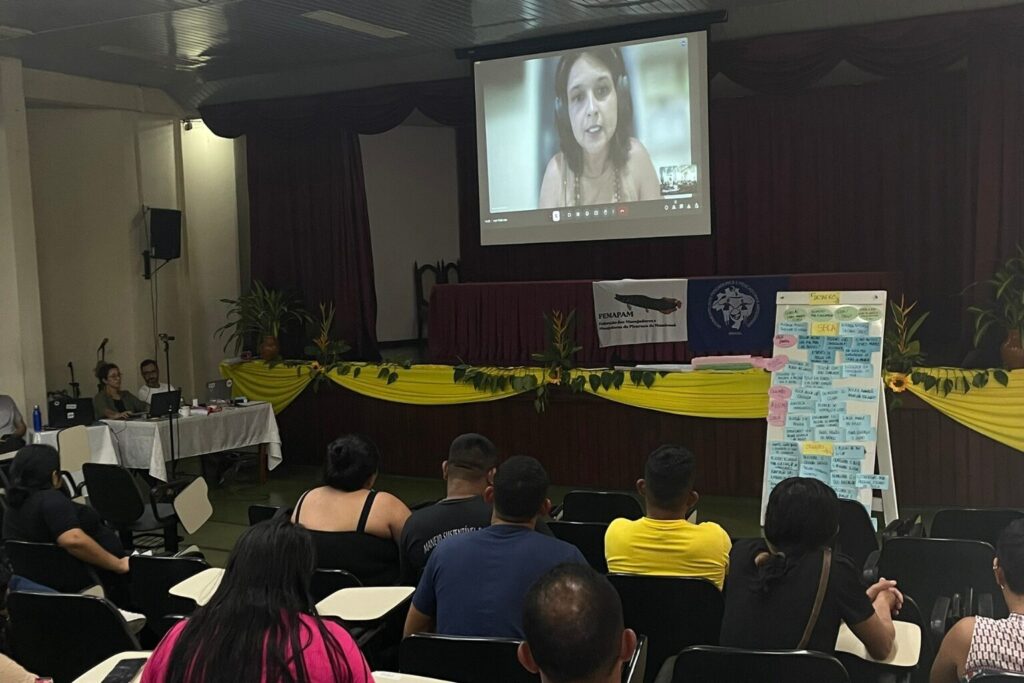
She highlighted the importance of recognition of local communities and their inclusion in global decisions, in addition to the need to follow the climatic goals defined for 2050. of local demands”, explains Andreia.
The role of women in the management
Female participation in the management of arapaima has gained space in the collective meetings, with debates on greater representation of women in political instances and initiatives to give visibility to their work. To strengthen this agenda, the Working Group (WG) gender, youth and intersectionalities was created in November 2023, responsible for articulating collective actions aimed at equity in the sector.
📖Read more: ‘Meeting of women who manages Amazon pirarucu discusses gender equality in the activity’
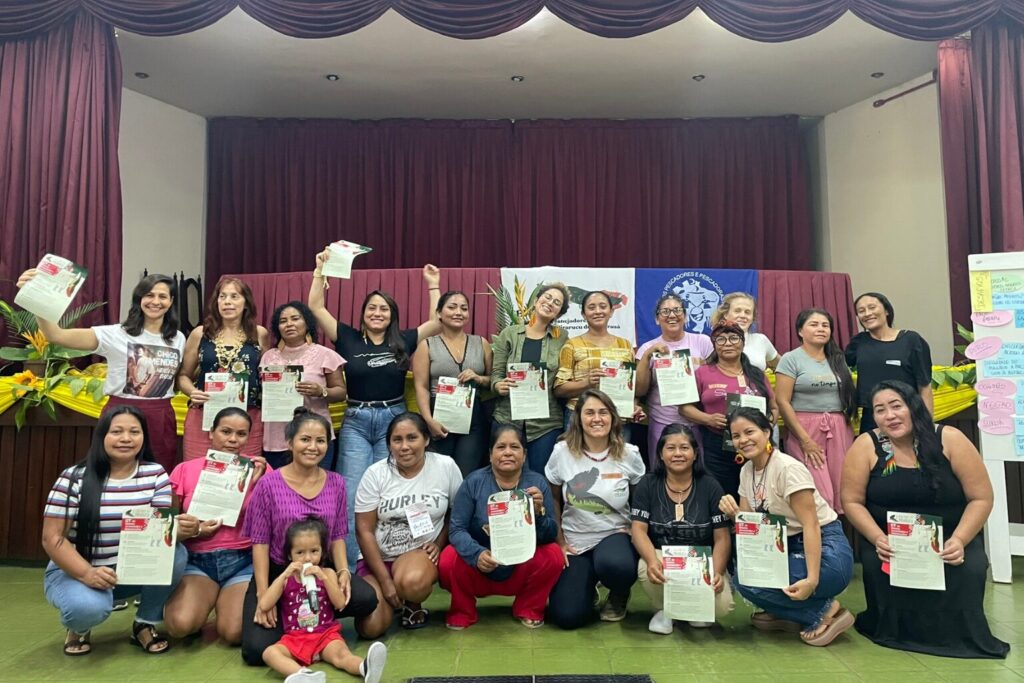
During the meeting, a table composed of managers representing different organizations such as AIPA, the Association of Agroextractivist Residents of the Low-Medium Juruá (AMAB) and the Association of Agroextrativist Women of the Middle Juruá (Asmamj), in addition to the researcher Edna Alencar (UFPA/IDSM) discussed strategies to expand women’s political participation.
The meeting also brought reports of initiatives already in progress, such as the experience of Amanã, shared by Brenda Meireles, an analyst at the Mamirauá Sustainable Development Institute (IDSM). “In Amanã, we recognize the managers who stood out throughout the year, and one of the awards is the Edna Alencar Award, dedicated to the women who made a difference in the activity”, explained Brenda.
Dialogues with the Public Power
Representatives of various bodies, such as IBAMA, Ministry of the Environment and Climate Change (MMA), Chico Mendes Institute for Biodiversity Conservation (ICMBio), National Supply Company (Conab) and Ministry of Agrarian Development and Family Agriculture (MDA), in addition to state institutions such as the State of the Environment of Amazonas (SEMA/AM) and the Institute of Environmental Protection of Amazonas (Ipaam), were present at the event. During the meeting, they shared information on public policies aimed at the sustainable management of the arapaima and listened to the demands of the handlers present.
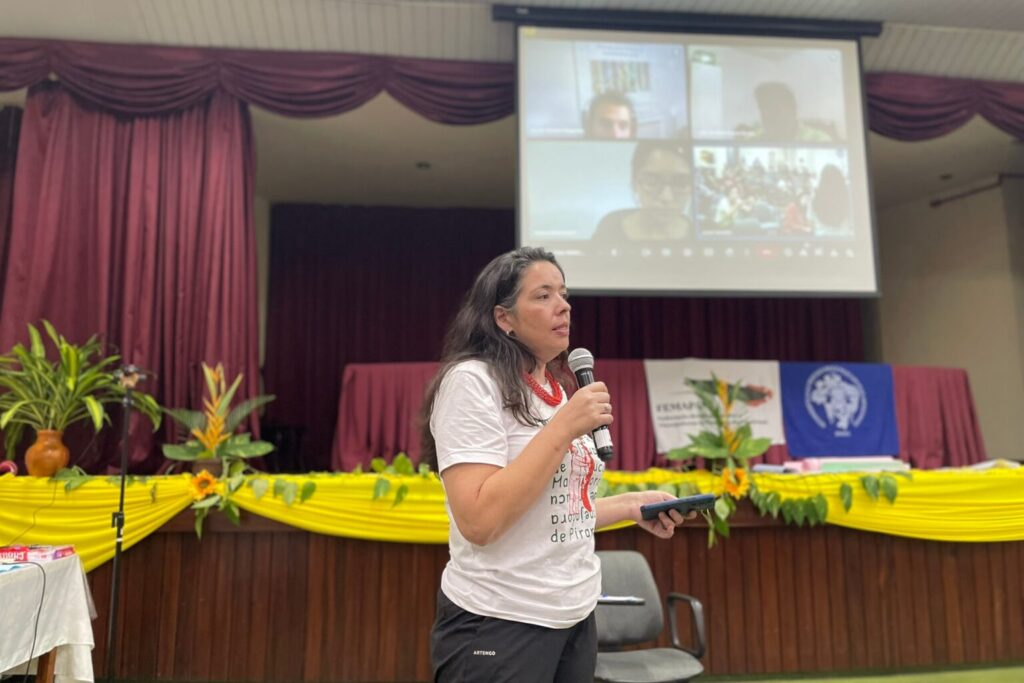
Among the topics discussed were the National Bioeconomy Strategy — part of the National Bioeconomy Plan —, the policy of guaranteeing minimum prices for sociobiodiversity products (PGPMio), the State Pirarucu State Subsidy, and support for territorial surveillance.
Film on management wins award in Italy
The film “Pirarucu, the breath of the Amazon”, directed by Carolina Fernandes and produced by Banksia Films, was doubly awarded in the 38th Sondrio International Documentary Film Festival, in Italy. In addition to receiving an honorable mention from the jury, the production won the award special award Renata Viviani, worth 1,500 euros. In a gesture of recognition, the film’s team was present at the end of the meeting and donated this value to the Pirarucu collective.
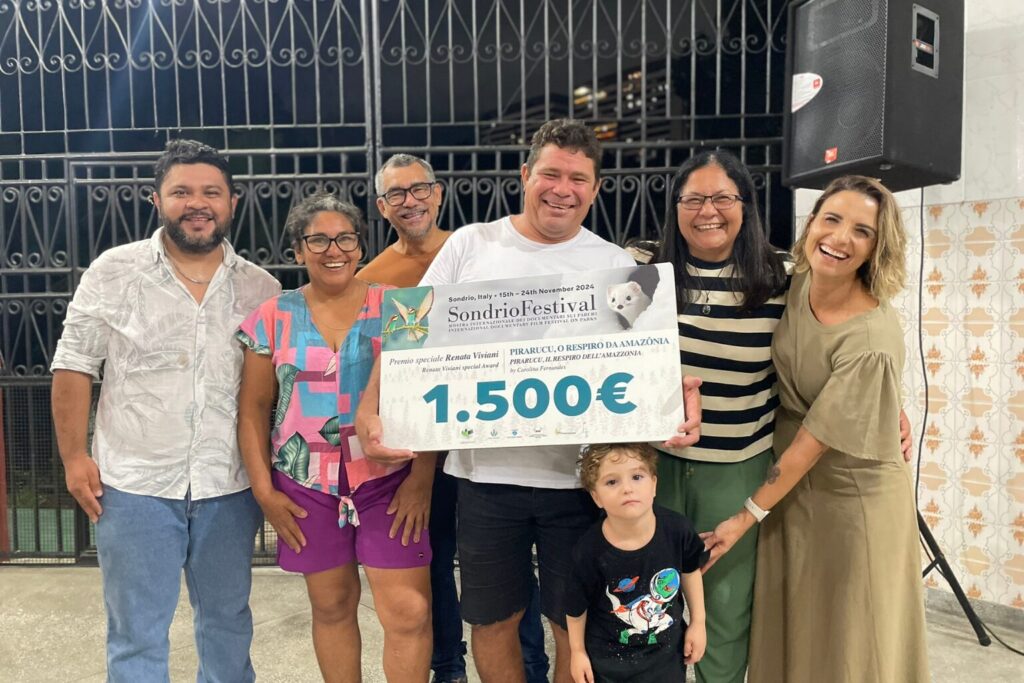
“We just got back from the Sondrio Festival, in Italy, and there we were doubly awarded the film. You are the most deserving and responsible for this award”, highlighted Carolina Fernandes when announcing the donation. The symbolic delivery was made to José Alves (Silas) and Ivaneide Souza, who represented the collective during the event. The conquest celebrates not only the talent of Amazonian cinema, but also the commitment of traditional peoples to the preservation of the forest and its natural resources.
